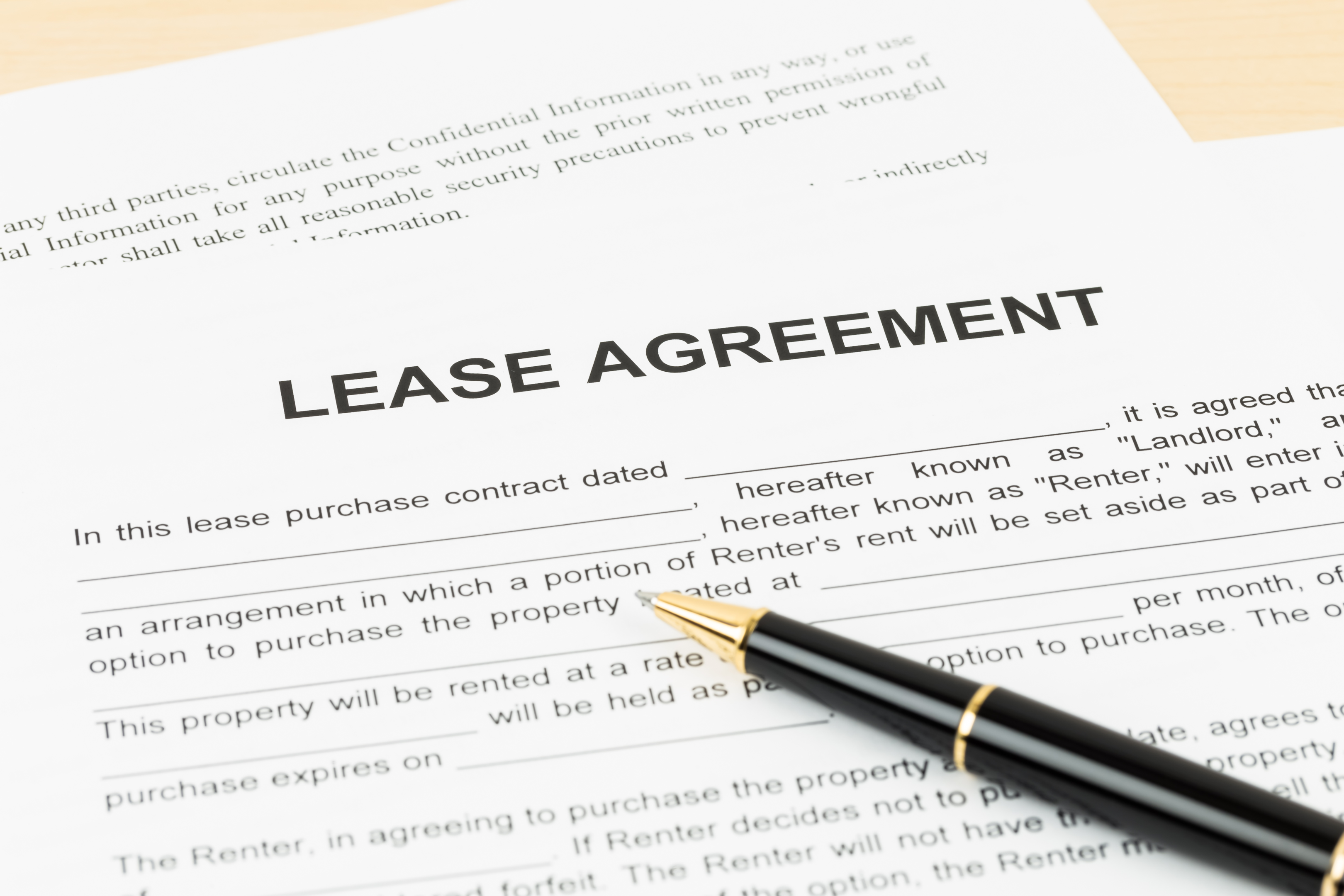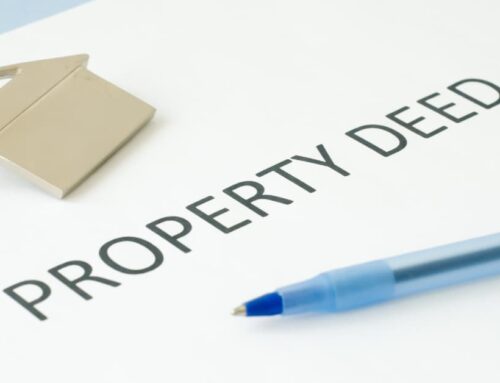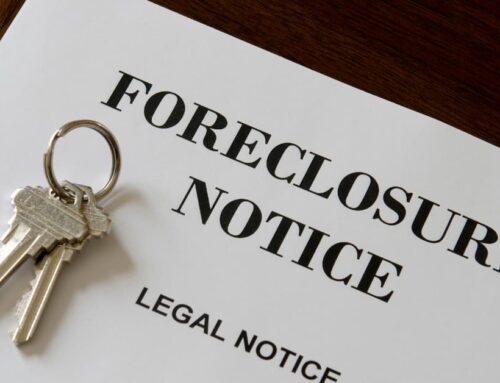When it comes to lease agreements and tenant-related issues, seeking legal guidance is crucial. These agreements form the basis of the landlord-tenant relationship, defining the rights and responsibilities of each party. By obtaining professional advice during the negotiation and drafting of lease agreements, you can protect your interests and ensure fair and favorable terms.
In this informative blog, we will delve deep into the significance of lease agreements, shedding light on the essential elements that should be included to ensure clarity and prevent potential disputes. Additionally, we will explore common issues that may arise in the landlord-tenant relationship, equipping you with the knowledge to navigate these challenges with confidence.
Take the first step towards securing your rights and resolving your landlord-tenant issues by reaching out to Kelly Legal Group today. Our team of highly skilled attorneys possesses extensive knowledge and expertise in the intricate laws and Texas property code regulations that govern landlord-tenant relationships. Don’t let legal complexities overwhelm you. Contact us online or give us a call at (512) 505-0053 to schedule a free consultation. Trust us to be your dedicated advocates in navigating the intricacies of landlord-tenant relationships and protecting your rights.
Understanding Lease Agreements
Lease agreements play a significant role in commercial property transactions, serving as the cornerstone of the landlord-tenant relationship. Understanding the intricacies of lease agreements is essential for both landlords and tenants to ensure a smooth and mutually beneficial tenancy. In this section, we will delve into the importance of lease agreements, explore key elements that should be included, and discuss common issues that may arise.
Lease agreements are legally binding contracts that outline the rights, obligations, and expectations of both landlords and tenants. These agreements provide a framework for the tenancy, establishing the rules and terms that govern the relationship between the parties involved. Whether you are a landlord looking to protect your property or a tenant seeking clarity on your rights and responsibilities, a well-drafted lease agreement is crucial.
👉Also read: When Should I Hire a Real Estate Lawyer in Texas?
Key Elements of a Lease Agreement

A comprehensive lease agreement should address various essential elements to ensure clarity and avoid potential disputes. Here are key elements that should be included:
- Parties Involved: The lease agreement should clearly identify the landlord(s) and tenant(s) involved in the transaction. It is important to include their legal names and addresses to ensure accurate identification.
- Property Description: A detailed description of the leased property should be provided, including the address, specific unit or suite numbers, and any applicable boundaries or limitations.
- Lease Term: The lease term specifies the duration of the tenancy, including the start and end dates. It is important to define whether it is a fixed-term lease or a month-to-month agreement.
- Rent Payment and Due Date: The lease agreement should outline the amount of rent to be paid, the frequency of payment (e.g., monthly), and the due date. It should also specify acceptable methods of payment.
- Security Deposit: The tenant’s lease agreement should detail the amount of the security deposit required, the conditions under which it may be withheld, and the process for its return at the end of the tenancy.
- Maintenance Responsibilities: Clear provisions should be included regarding the maintenance and repairs of the property. This may include outlining the responsibilities of both the landlord and tenant, such as who is responsible for routine maintenance, repairs, and upkeep of common areas.
- Use and Restrictions: The lease agreement should specify the permitted use of the leased property and any restrictions or limitations imposed by the landlord, such as prohibiting certain activities or subleasing.
- Default and Remedies: It is crucial to address the consequences of default by either party and the remedies available to the non-defaulting party. This may include provisions for resolving disputes, eviction procedures, and any applicable penalties or fees.
Common Issues in Lease Agreements
Despite careful drafting, lease agreements can still give rise to various issues and disputes. Some common issues that may arise include:
- Rent Payment Delinquency: Late or missed rent payments can strain the landlord-tenant relationship. The lease agreement should outline the consequences of non-payment, including any late fees or penalties.
- Maintenance and Repairs: Disagreements over maintenance and repairs can occur when responsibilities are not clearly defined. The lease agreement should specify the obligations of both parties to avoid confusion and potential conflicts.
- Lease Renewal and Termination: Issues may arise when it comes to lease renewals or terminations. It is important to establish clear guidelines regarding renewal options and the process for giving notice to terminate the lease.
- Alterations and Improvements: The lease agreement should address any restrictions or requirements regarding alterations or improvements made to the property by the tenant. This can help prevent unauthorized modifications and disputes over tenant improvements.
- Subleasing: If subleasing is permitted, the lease agreement should clearly outline the terms and conditions for subleasing, including obtaining the landlord’s consent and any additional responsibilities or liabilities involved.
By addressing these key elements and potential issues in lease agreements, landlords and tenants can mitigate conflicts and ensure a mutually beneficial tenancy. Seeking legal guidance from experienced lawyers can provide valuable insights and assistance in drafting, reviewing, and negotiating lease agreements.
Tenant’s Lease and Rights
Tenants play a crucial role in the landlord-tenant relationship, and understanding their rights and responsibilities is essential for a successful tenancy. In this section, we will discuss the rights and responsibilities of tenants as outlined in their lease agreements and explore the legal protections provided to tenants under relevant laws and regulations.
Lease agreements serve as the primary document that outlines the terms and conditions of the tenancy. They establish a contractual relationship between the landlord and tenant, specifying the rights and responsibilities of each party. It is crucial for tenants to thoroughly review and understand their lease agreements before signing them to ensure that they are aware of their rights and obligations.
Rights and Responsibilities of Tenants
- Right to Quiet Enjoyment: Tenants have the right to peacefully and reasonably enjoy their rental property without interference from the landlord. This includes the right to privacy and the right to be free from unreasonable disturbances.
- Right to Habitability: Tenants have the right to live in a safe, clean, and habitable property. Landlords are responsible for maintaining the premises in a condition that meets basic health and safety standards.
- Right to Repairs: Tenants have the right to prompt repairs for any maintenance issues or defects that affect the habitability of the property. It is the landlord’s responsibility to address these repairs in a timely manner.
- Responsibility for Rent Payments: Tenants are responsible for paying rent as outlined in their lease agreement. It is important to adhere to the agreed-upon rent amount and pay on time to maintain a positive landlord-tenant relationship.
- Responsibility for Property Care: Tenants are responsible for taking care of the rental property and ensuring that it is kept clean and free from damage beyond normal wear and tear. They are also responsible for promptly reporting any maintenance issues to the landlord.
Legal Protections for Tenants
In addition to the rights and responsibilities outlined in the lease agreement, tenants are also protected by various laws and regulations. These laws vary depending on the jurisdiction, but they generally aim to safeguard tenants from unfair practices and provide remedies in case of disputes. Some common legal protections for tenants include:
- Fair Housing Laws: Fair housing laws prohibit landlords from discriminating against tenants based on protected characteristics such as race, color, religion, sex, national origin, familial status, or disability. These laws ensure equal access to housing opportunities for all individuals.
- Security Deposit Protection: Many jurisdictions have laws that regulate the collection and handling of security deposits. These laws typically require landlords to properly handle and account for security deposits, including providing tenants with written documentation of any deductions made from the security deposit.
- Rent Increase Restrictions: Some jurisdictions impose limitations on the frequency and amount of rent increases. These laws aim to prevent landlords from implementing excessive or unfair rent hikes that could burden tenants.
- Protection against Retaliation: Tenants are protected against retaliation by landlords for exercising their legal rights, such as reporting code violations or joining a tenant organization. Landlords are prohibited from taking adverse actions, such as eviction or rent increases, in response to tenant complaints or lawful activities.
- Notice Requirements: Landlord-tenant laws often specify the notice periods required for various actions, such as lease termination or rent increase notifications. These notice requirements ensure that tenants have sufficient time to plan and make informed decisions.
It is crucial for tenants to be aware of these legal protections and their rights under the law. If tenants encounter any violations of their rights or face disputes with their landlords, seeking legal advice from an experienced real estate lawyer can help navigate the situation and ensure their rights are upheld.
Navigating the complexities of Texas real estate law can be overwhelming, but you don’t have to do it alone. At Kelly Legal Group, our dedicated team of real estate attorneys will guide you through every step of the way, ensuring that you are protected throughout the entire process. Call Kelly Legal Group at (512) 505-0053 to schedule your free consultation today.
Dealing with Commercial Tenants

Commercial tenancies present unique considerations for both landlords and tenants. In this section, we will explore the rights and obligations of commercial landlords and tenants, discuss the legal recourse available to landlords in case of non-compliance, and highlight our law firm’s experience in representing commercial landlords and tenants.
Rights and Obligations of Commercial Landlords and Tenants
- Lease Negotiations: Commercial lease agreements involve more extensive negotiations compared to residential leases. Both landlords and tenants have the right to negotiate the terms and conditions of the lease, including rent, lease duration, renewal options, and any additional provisions specific to the commercial property.
- Lease Terms and Conditions: Commercial landlords and tenants must carefully review and understand the lease terms and conditions before signing. The lease should clearly outline the rights and obligations of both parties, including rent payment terms, maintenance responsibilities, permitted use of the property, and any restrictions or limitations.
- Rent Payment and Escalations: Commercial tenants are responsible for paying rent as agreed upon in the lease agreement. It is common for commercial leases to include provisions for rent escalations based on factors such as inflation or a percentage of the tenant’s revenue.
- Property Maintenance: While landlords are generally responsible for maintaining the structural integrity of the building and common areas, commercial tenants often bear responsibility for maintaining their leased space. The lease agreement should clearly define the maintenance obligations of both parties.
- Compliance with Zoning and Regulations: Commercial tenants have an obligation to comply with local zoning regulations and any specific requirements outlined in the lease agreement. This may include obtaining necessary permits, adhering to safety standards, and ensuring that the business conducted on the premises aligns with the permitted use.
👉Also read: Causes of Real Estate Litigation
Legal Recourse for Commercial Landlords in Case of Non-Compliance
In the event that a commercial tenant fails to comply with the terms of the lease agreement, landlords have legal recourse available to them. This may include:
- Lease Termination: If a tenant consistently fails to meet their obligations, landlords may have the right to terminate the lease agreement. However, it is important to follow proper legal procedures and adhere to any notice requirements outlined in the lease and applicable laws.
- Rent Recovery: Commercial landlords have the right to pursue legal action to recover unpaid rent or damages caused by the tenant’s non-compliance. This may involve filing a lawsuit and seeking a judgment for the owed rent or damages.
- Eviction: In extreme cases where lease termination and rent recovery are not sufficient, landlords may have grounds for eviction. Eviction lawsuit proceedings must be conducted in accordance with local laws and regulations, and proper notice must be given to the tenant.
Our Experience in Representing Commercial Landlords and Tenants
At Kelly Legal Group, we have extensive experience representing both commercial landlords and tenants in a wide range of matters. Our expertise in business and real estate law allows us to provide comprehensive legal assistance tailored to the specific needs of our clients. Whether you are a commercial landlord seeking to protect your property and enforce lease agreements or a tenant navigating complex lease terms, we are here to guide you through the process.
We have a deep understanding of the legal intricacies involved in commercial tenancies, including lease negotiations, drafting lease agreements, resolving disputes, and pursuing legal remedies when necessary. Our goal is to protect the rights and interests of our clients while working towards fair and practical solutions.
Rent, Security Deposits, and Payment Disputes
Rent, security deposits, and payment disputes are common issues that can arise in landlord-tenant relationships. In this section, we will discuss the obligations and rights related to rent payment and security deposits, address common issues such as late rent, rent owed, and delinquent rent, and explain the legal steps involved in resolving payment disputes and recovering damages.
Obligations and Rights Related to Rent Payment and Security Deposit
Rent payment is a fundamental obligation for tenants, and landlords rely on timely rent payments to cover property expenses and generate income. Tenants have a legal obligation to pay rent as outlined in the lease agreement. It is essential for tenants to understand the agreed-upon rent amount, payment due dates, and acceptable methods of payment.
Landlords, on the other hand, have the responsibility to provide tenants with clear rent payment instructions, including the preferred payment method and the designated payee or payment account. They must also adhere to any rent increase guidelines established by local laws or outlined in the lease agreement.
Security deposits serve as a form of protection for landlords against potential damages or unpaid rent. Tenants typically provide a security deposit at the beginning of the tenancy, which is held by the landlord to cover any unpaid rent or damages beyond normal wear and tear. Landlords have the obligation to handle security deposits in accordance with applicable laws, including providing tenants with written documentation detailing the amount of the deposit and any deductions made.
Common Issues and Resolving Payment Disputes
Late rent, rent owed, and delinquent rent are common issues that can strain the landlord-tenant relationship. When rent is not paid on time, it can create financial difficulties for landlords and affect their ability to maintain the property.
In the event of late rent payments, landlords may charge late fees as specified in the lease agreement. It is crucial for tenants to communicate with their landlords if they anticipate difficulties in making timely payments. Open communication can help prevent misunderstandings and allow both parties to find mutually acceptable solutions.
If a tenant fails to pay rent or falls significantly behind, landlords may need to take legal action to recover the owed rent. This typically involves sending a formal notice to the tenant, such as a demand letter, to request payment within a specified timeframe. If the tenant fails to respond or make payment, landlords may proceed with legal remedies, such as filing a lawsuit to recover the outstanding rent and any associated damages.
When resolving payment disputes, it is important for both landlords and tenants to gather evidence to support their cases. This may include rent payment receipts, bank statements, lease agreements, and any correspondence related to the payment issue. Seeking legal advice from experienced real estate lawyers can be beneficial in navigating payment disputes, as they can provide guidance on the applicable laws and help negotiate a resolution.
👉Also read: Common Types of Neighbor Disputes
Evictions and Legal Proceedings
In unfortunate cases where eviction becomes necessary, our lawyers are well-versed in the eviction process and the intricacies of forcible detainer actions.
Evictions and legal proceedings can be complex and emotionally charged processes for both landlords and tenants. In this section, we will discuss the grounds for eviction, including non-payment, lease violations, and material interference, and explore the legal rights and responsibilities of landlords and tenants during eviction proceedings.
Grounds for Eviction
Evictions can be initiated for various reasons, such as non-payment of rent, lease violations, and material interference. The specific grounds for eviction may vary depending on local laws and the terms of the lease agreement.
- Non-Payment of Rent: Failure to pay rent is one of the most common reasons for eviction. If a tenant consistently fails to make timely rent payments, landlords may ask to vacate the property.
- Lease Violations: Violations of lease terms and conditions, such as unauthorized subleasing, excessive property damage, or conducting illegal activities on the premises, can also be grounds for eviction.
- Material Interference: Tenants who significantly interfere with the peaceful enjoyment of other tenants or cause material harm to the property may be subject to eviction.
Legal Rights and Responsibilities of Landlords and Tenants During Eviction Proceedings
Both landlords and tenants have legal rights and responsibilities during eviction proceedings. Understanding these rights is crucial for ensuring a fair and just process.
- Landlord’s Rights and Responsibilities: Landlords have the right to initiate eviction proceedings when there are valid grounds for eviction. However, they must follow the proper legal procedures, provide written notice to tenants, and allow for any cure periods or opportunities to rectify the issue. Landlords also have the responsibility to present evidence supporting their case and adhere to all applicable laws and regulations.
- Tenant’s Rights and Responsibilities: Tenants have the right to defend against eviction and present any applicable defenses, such as disproving the grounds for eviction or asserting that the eviction is retaliatory. Tenants must also adhere to the terms of the lease agreement, maintain the leased premises in good condition, and comply with all applicable laws and regulations.
During eviction proceedings, both parties have the right to legal representation. Seeking guidance from an experienced real estate attorney can help navigate the complexities of eviction proceedings, ensure that all legal rights are protected, and work towards a fair resolution
Take Control of Your Legal Matters Today – Schedule Your Free Consultation!
Kelly Legal Group is your trusted partner for comprehensive legal services in business and real estate matters. Our team of experts is committed to providing the highest level of professionalism and expertise to address your specific needs.
We understand the urgency of legal issues and offer free consultations to ensure that you receive the guidance you need promptly. During these consultations, we will attentively listen to your concerns, assess your situation, and provide clear guidance tailored to your unique circumstances. Our goal is to empower you with the knowledge and confidence necessary to make informed decisions.
Call (512) 505-0053 to schedule a free initial consultation today with an experienced business and real estate attorney. We proudly serve clients in Austin, Texas, and the surrounding areas, delivering expert legal services and support.






